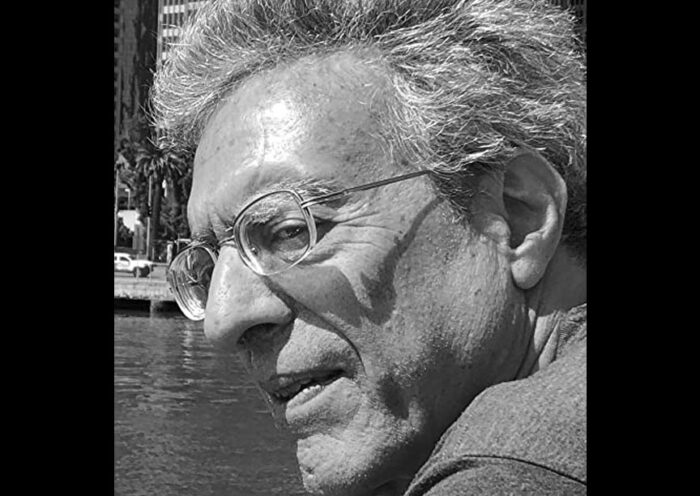SONG
by J. R. Solonche
Old English sang, of Germanic origin; related to Dutch zang and German Sang.
Male hedonistic pleasures are summarized as wine, women, and song.
Speaking of pleasures, in my time I’ve heard many a siren song.
I’ll write a song and dance ghazal next, but in this one I have to say “a dance and a song.”
I can’t think of anything I’ve bought or sold for a song.
Rolling Stone Magazine ranks Bob Dylan’s “Like a Rolling Stone” the #1 song.
Michael Jackson’s “Thriller” is ranked the #1 pop song.
W.C. Handy’s “Memphis Blue” is the greatest blues song.
“Hoochie Coochie Man” by Muddy Waters is the greatest blues song.
B.B. King’s “The Thrill Is Gone” is the greatest blues song.
“I’d Rather Go Blind” by Etta James is the greatest blues song.
Howlin Wolf’s “Smokestack Lightning” is the greatest blues song.
So, Solonche, you do know that you need one more song?
Yes, I do know I need one more song, so here is my swan song.
DANCE
Middle English: from Old French dancer (verb), dance (noun), of unknown origin.
Terpsichore (the most beautiful of the nine) is the Greek muse of dance.
As I promised, now I can quote the correct idiom of a song and a dance.
I never went to my high school prom because I didn’t know how to dance.
One of the biggest hit songs (The Bee Gees) is “You Should Be Dancing.”
The debut (2008) single (Grammy nominated 2009) by Lady Gaga was “Just Dance.”
The samba of Brazil is the world’s most popular folk dance.
Baladi is a form of Egyptian belly dance, a truly hypnotic dance.
The hora is a popular Israeli circle dance.
Popular in South Africa is the gumboot (they wear Wellingtons) dance.
Clogging is the official Kentucky and North Carolina state dance.
Minnesota is the only state that has no official state dance.
So, Solonche, will you, won’t you, will you, won’t you, won’t you join the dance?
Oh, someday, one day, maybe Sunday, I may, I mean, I might join the dance.
HOLY
Old English hālig, of Germanic origin; related to Dutch and German heilig.
William Shakespeare, All’s Well That Ends Well: “Love is holy.”
In the first season (1966) of Batman, Robin said 356 phrases with holy.
The room in a synagogue where only the rabbi may enter is the holy of holies.
The exclamation used by Captain Marvel to mean Wow! is Holy Moley!
The trademark expression of Yankee broadcaster Phil Rizzuto (1917-2007) was Holy cow!
In the New Testament, “set apart” is the definition of holiness.
In the Old Testament, connection to God’s perfection was holiness.
Sapta (seven) Puri (town) are the seven cities in India considered the most holy.
In Buddhism, Bodh Gaya (where Buddha attained Enlightenment) is the holiest.
In the Shinto religion of Japan, The Grand Shrine of Ise is considered the most holy.
Of the sacred sites for Muslims, The Ka’ba in Mecca, Saudi Arabia, is the most holy.
So, Solonche, you atheist, what, if anything, do you consider holy?
Like the other atheist above said, “Love is holy.”
BIO
Professor Emeritus of English at SUNY Orange, J.R. Solonche has published poetry in more than 500 magazines, journals, and anthologies since the early 70s, including The New Criterion, The New York Times, The Threepenny Review, The American Scholar, The Progressive, Poetry Northwest, Salmagundi, The Literary Review, The Sun, The American Journal of Poetry, Poet Lore, Poetry East, The Hampden-Sydney Poetry Review, The Journal of the American Medical Association, and Free Verse. His poems have been read on Garrison Keillor’s The Writer’s Almanac and other radio shows and have been translated into Portuguese, Italian, German, and Korean. He is the author of Beautiful Day (Deerbrook Editions), Won’t Be Long (Deerbrook Editions), Heart’s Content (Five Oaks Press), Invisible (nominated for the Pulitzer Prize by Five Oaks Press), The Black Birch (Kelsay Books), I, Emily Dickinson & Other Found Poems (Deerbrook Editions), In Short Order (Kelsay Books), Tomorrow, Today and Yesterday (Deerbrook Editions), True Enough (Dos Madres Press), The Jewish Dancing Master (Ravenna Press), If You Should See Me Walking on the Road (Kelsay Books), In a Public Place (Dos Madres Press), To Say the Least (Dos Madres Press), The Time of Your Life (Adelaide Books), The Porch Poems (Deerbrook Editions , 2020 Shelf Unbound Notable Indie Book), Enjoy Yourself (Serving House Books), Piano Music (nominated for the Pulitzer Prize by Serving House Books), For All I Know (Kelsay Books), A Guide of the Perplexed (Serving House Books), The Moon Is the Capital of the World (Word Tech Communications), Years Later (Adelaide Books), The Dust (Dos Madres Press), Selected Poems 2002-2021 (nominated for the National Book Award by Serving House Books), Life-Size (Kelsay Books), The Five Notebooks of Zhao Li (Adelaide Books), Coming To (Word Tech Communications/David Robert Books), The Lost Notebook of Zhao Li (Dos Madres Press, nominated for the Pulitzer Prize), Around Here (Kelsay Books), It’s About Time (Deerbrook Editions), The Book of a Small Fisherman (Shanti Arts Publishing), Leda (Dos Madres Press), The Dreams of the Gods (Kelsay Books), Alone (David Robert Books), The Eglantine (Shanti Arts Publishing), and coauthor with his wife Joan I. Siegel of Peach Girl: Poems for a Chinese Daughter (Grayson Books). He lives in the Hudson Valley.



















